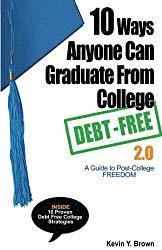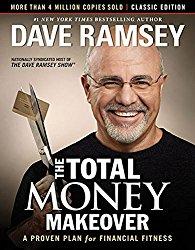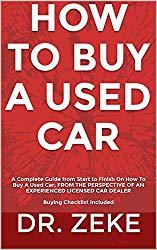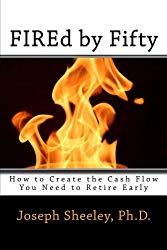Now that I have your attention, lets me say that if you can get through college without student loans, that is way, way better than starting out your adult life with $100,000 in debt. If you need ideas on how to do this, check out 10 Ways Anyone Can Graduate From College Debt Free 2.0: A Guide to Post-College Freedom. That said, student loans are one of the few loans that actually make sense for many people if you don’t have the money to pay for your education with cash. In fact, if you’re looking at a posh private school, going on student loans makes way more sense than shelling out your own money. Perverse as this may sound, hear me out.

(The Small Investor uses affiliate links to help generate income to keep the blog going. When you buy a product through a link on this site, The Small Investor gets a small commision for the referral. This does not cost you anything and helps keep us generating great, free content. It is a win-win for both of us. So please, check out the products or just go to Amazon through one of our links and then buy something else that you need.)
Paying full-price at a private college, which is what you’ll probably do if you save up the money to do so, will cost around $80,000 per year, or about $320,000 for a four-year degree. That could be $400,000 or $480,000 if it takes 5 or 6 years to get that degree. If you were to invest that third of a million dollars in a diversified set of index stock funds for a full 45-year working career instead of spending it on college, you would have $6.7 M after inflation at retirement. Estimates are that you’ll make about $450,000 after inflation more during your working career due to having your college degree. That means you’ll make more than $6 M more by investing the money than you will by attending college.
Attending a public school is a bit better. With tuition plus room-and-board around $25,000 per year, you might be able to get a degree for a cool $100 grand. Invest that instead, and you would only have about $2.1 M after inflation. This is still better than the increased earnings with a college degree, but the two outcomes are closer financially than the private versus no-college comparison.
So if it makes no economic sense to pay your own money for a posh private college, why would it make sense to take out loans to go to one? There are a number of reasons to go to college beyond the increase in pay. The main reason is that having a degree allows you to get a lot of jobs that you cannot have without a college degree. These are often better-paying jobs that are more interesting because they’re more challenging mentally and less repetitive. In addition, that extra $450,000 you can make over your working lifetime can put you in a much better position economically when you are going into retirement if you don’t have the $320,000 to invest in the first place. So, if you have the money, investing instead of college makes sense. If you don’t, getting a loan to go to college instead of spending your life in a lower-paying job makes sense.
Now, if you could get someone to loan you $320,000 that you could just invest, it would still make more sense economically for you to invest the money than to spend it on college. The issue is that no one will loan you money for that purpose. They loan you the money because they know that you’ll make more money by going to college and they can get their money back with interest when you do. Because student loans are not bankruptable, they know that they will get their money back. In fact, they’ll make a lot more money if you take decades to pay the loans off since they’ll be collecting interest all of that time. Even if your loans are zeroed out through student loan forgiveness programs, the taxpayers will pay off your bills so the loan companies still get their money plus interest.
If you’re coming into college with no money, it makes sense to use student loans to get your degree and then use the added income to pay off the loan. This is money that you would not have had if you didn’t go to college, plus you’ll make a little bit more over your working lifetime and have access to interesting jobs with benefits like health insurance. Going to a private college instead of public also makes sense if you don’t have money since they will scale tuition based on your family income, meaning that it may actually be cheaper to go to a private college than a public one if your family doesn’t have a significant net worth. In fact, if you come from an impoverished background, you can likely go to most elite private colleges like Harvard, Yale, and Duke with free tuition. If your family does have a lot of cash, perhaps because they read FIREd by Fifty: How to Create the Cash Flow You Need to Retire Early, a public school makes more sense since the private one will make you pay full price.
Use your Loans Wisely
This all does not mean that getting just any degree or running up large loan balances is a good thing. If your family is wealthy and they want to pay for their kid to get a degree in French History, that’s fine. It is a luxury purchase that they are free to make with their money. If you get a history or underwater basket weaving degree with student loan debt, however, it is unlikely that you’ll make enough to cover the loans plus make extra through your lifetime. If you’re going to school on debt, look to fields like engineering, business, or law where you the degree will lead to higher-paying jobs. Take a look at what jobs in your planned field pay before you select a major and make sure that it will be worth the investment and all of the interest you will be paying. Also make sure there are jobs available in the field so that you won’t be working the same job you were in high school once you get out, waiting for your big break.
Now, just because taking on loans is better than not attending college doesn’t mean that bigger loans lead to bigger benefits. Minimize the amount you take out in loans once you go to college. Pretend that you are spending your own money (because you are, plus some). Work side jobs and overtime during the summers, find a cheap place to live, take as many classes as you can handle to get out as fast as possible, and plan on cooking at home every night to minimize food costs. The less debt you end up with when you finish, the better, since that will allow you to start putting money away for a home and retirement immediately once you start a real job. Don’t assume that the debt forgiveness fairy will come along and wave away your loans because they are so big and unmanageable. You are signing up for every bit of debt you take on. Make sure each dollar is worth it.
Once You’re Out
When you start working, attack your debt vociferously. Buy and read The Total Money Makeover: Classic Edition: A Proven Plan for Financial Fitness

Instead of buying the new car that many grads do, pick a reliable used-car and call it your “get-out-of-debt car.” Check out HOW TO BUY A USED CAR: A Complete Guide from Start to Finish On How To Buy A Used Car; FROM THE PERSPECTIVE OF AN EXPERIENCED LICENSED CAR DEALER Buying Checklist Included

Finally, once you get out-of-debt and are ready to start building up your wealth, take a look at FIREd by Fifty: How to Create the Cash Flow You Need to Retire Early to learn how to build a cash flow plan and become financially independent.

Please contact me via [email protected] or leave a comment.
Follow me on Twitter to get news about new articles and find out what I’m investing in. @SmallIvy_SI
Disclaimer: This blog is not meant to give financial planning or tax advice. It gives general information on investment strategy, picking stocks, and generally managing money to build wealth. It is not a solicitation to buy or sell stocks or any security. Financial planning advice should be sought from a certified financial planner, which the author is not. Tax advice should be sought from a CPA. All investments involve risk and the reader as urged to consider risks carefully and seek the advice of experts if needed before investing.
